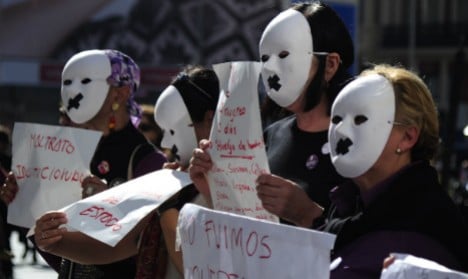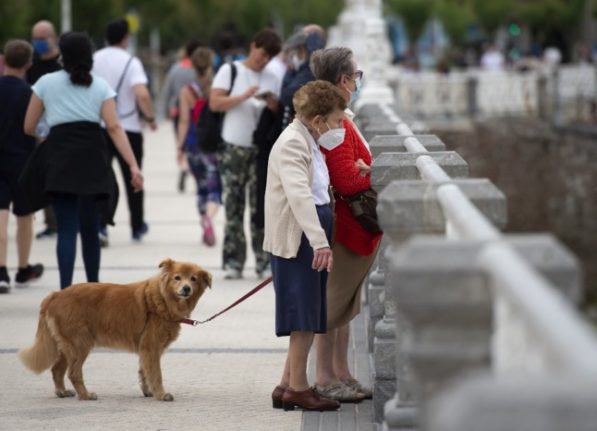The campaign organization released on Wednesday its annual human rights report for 2016-17, delivering the most comprehensive analysis of the state of human rights in 159 countries around the world.
These are the seven areas of concern identified in Spain.
1. Freedom of expression and assembly

Spaniards have been protesting as the country's new “gag law” comes into force. Photo: Dani Pozo/AFP
Throughout 2016, the repressive “gag law” was used to place “unwarranted restrictions on the rights to freedom of expression, information and public assembly” according to the report..
It was a year that saw two puppeteers imprisoned for five days for performing a street play which included the sign “Up with Eta” in reference to the Basque separatist terrorist group. They were investigated for “glorifying terrorism and incitement to hatred” but the charges were later dropped.
2. Torture and other ill-treatment

New cases of torture and other ill-treatment, including excessive use of force by law enforcement officers, were reported throughout the year, stated the report.
The report highlighted the case of Ester Quintana, the protestor who lost an eye after being hit with a rubber bullet by the regional Mossos d’Esquadra police force during a demonstration in Barcelona. The trial, which took place last May, ended with the acquittal of the officers involved as the court was unable to establish which one had fired the bullet.
3. Refugees’ and migrants’ rights

Migrants at the fence separating the Spanish enclave of Melilla from Morocco. Photo: AFP
Spain was slammed for the inadequate reception system for asylum-seekers, with too few places at reception centres and not enough assistance for those housed outside them. Spain was also criticised for its failure to implement the Asylum Act, six years after its entry into force and the enormous backlog of asylum applications – registered at 29,845 cases by August.
The report also slammed authorities for the collective expulsion of migrants who climbed the border fences from Morocco into the enclaves of Melilla and Ceuta and allowed them to be beaten by Moroccan officers who entered into the territory between the fences.
READ MORE: Refugees welcome in Spain. So where are they?
Despite Spain pledging to take in 1,449 refugees from the Middle East and North Africa, Spain only accepted 289 individuals – all Syrian refugees – by the end of December.
Likewise, only 363 refugees were resettled to Spain from overcrowded camps in Italy and Greece by December, a far cry from the commitment to take in 15,888 people.
4. Impunity

Archive photo from the Spanish Civil War: AFP
Spain was criticised for failing to investigate crimes carried out during the Civil War and subsequent dictatorship of Francisco Franco.
It was noted that Spain is continuing to refuse to cooperate with the Argentine judiciary to investigate crimes, such as enforced disappearance and torture, under international law.
5. Discrimination – Migrants’ Health
Spain was called out once again for failing to offer protection to some of the most vulnerable social groups. The report blamed austerity measures for restricting health care for undocumented migrants, removing health cards from 748,835 people and potentially putting their lives at risk. It said women had been particularly effected, with barriers placed on access to services related to sexual and reproductive health.
6. Right to housing

An eviction in Seville. Photo: Gogo Lobato/AFP.
Evictions have been a major flashpoint in Spain since the economy crashed in 2008, and the housing crisis continued during 2016 with 19,714 forced mortgage evictions and 25,688 evictions for nonpayment of rent.
“Householders facing repossession claims continued to lack adequate legal remedies to enforce the protection of their right to housing before courts,” said the report.
7. Violence against women

Photo: Cristina Quicler/AFP
Spain's Ministry of Health reported that 44 women were killed by current or former partners during 2016 – a reduction on the 56 killed in similar circumstances the year before but enough to continue being concerned about “the effectiveness of prosecutions and the adequacy of victim protection measures.”




 Please whitelist us to continue reading.
Please whitelist us to continue reading.
Member comments